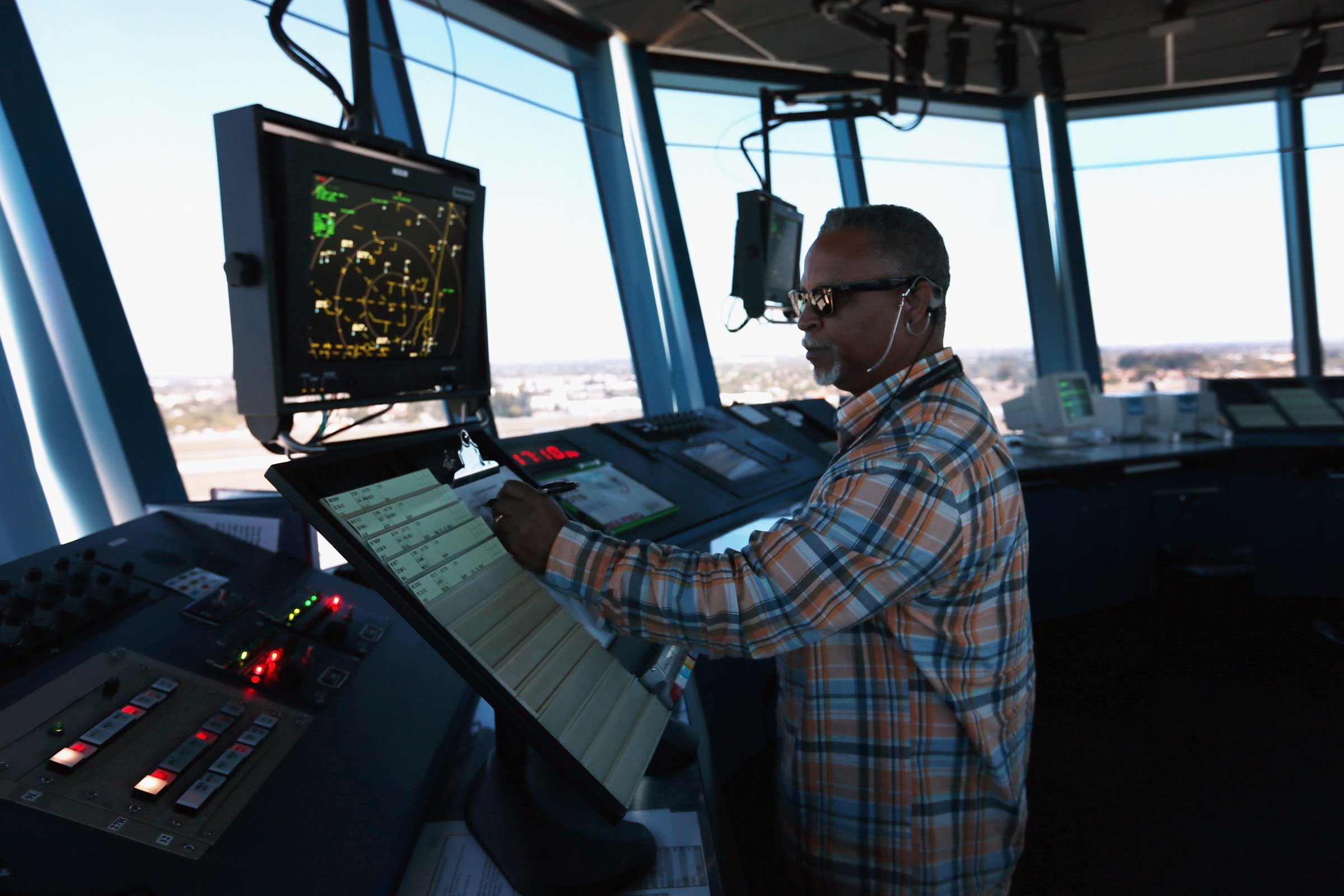
Air traffic controllers’ demanding schedules can result in chronic fatigue and inhibit their ability to keep travelers safe, according to a previously unreleased study requested by the Federal Aviation Administration and conducted by NASA. The study has been kept secret for almost four years, despite dogged attempts by the Associated Press to extract it through Freedom of Information Act requests.
The study found that nearly 20% of controllers had “committed significant errors in the previous year” and more than half of them blamed fatigue for the mistakes, according to the AP, which obtained a draft of the final report dated December 2011. Controllers averaged less than 6 hours of sleep each day, with less rest before time spent working at odd hours.
In one popular shift, called the “rattler,” controllers squeezed five eight-hour shifts into four 24-hour periods in order to enjoy a three-day weekend, resulting in little recovery time between shifts.
The study recommended that controllers not be allowed to work six-day weeks, as 30% of those who worked such a schedule admitted to committing significant errors. The AP reported that such schedules remain common today.
The FAA on Monday issued a press release that did not acknowledge the study or the AP report, but outlined a “comprehensive Fatigue Risk Management System to manage controller fatigue” that was implemented in 2012. “Fatigue is an issue in any 24/7 operation, the FAA has taken many positive steps to minimize fatigue,” read the agency’s release. The FAA did not immediately respond to Fortune’s request for comment.
More Must-Reads From TIME
- The 100 Most Influential People of 2024
- The Revolution of Yulia Navalnaya
- 6 Compliments That Land Every Time
- What's the Deal With the Bitcoin Halving?
- If You're Dating Right Now , You're Brave: Column
- The AI That Could Heal a Divided Internet
- Fallout Is a Brilliant Model for the Future of Video Game Adaptations
- Want Weekly Recs on What to Watch, Read, and More? Sign Up for Worth Your Time
Contact us at letters@time.com